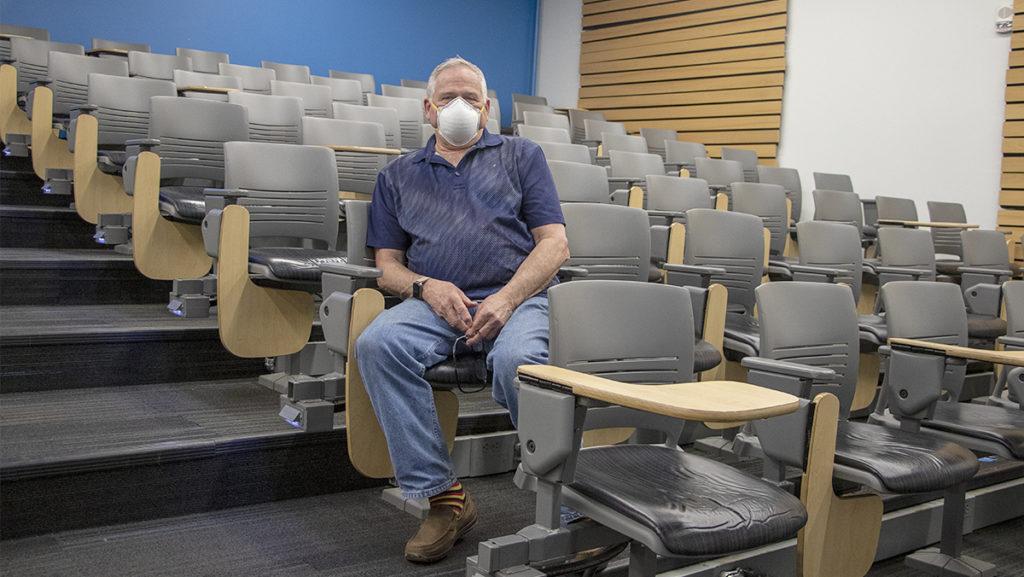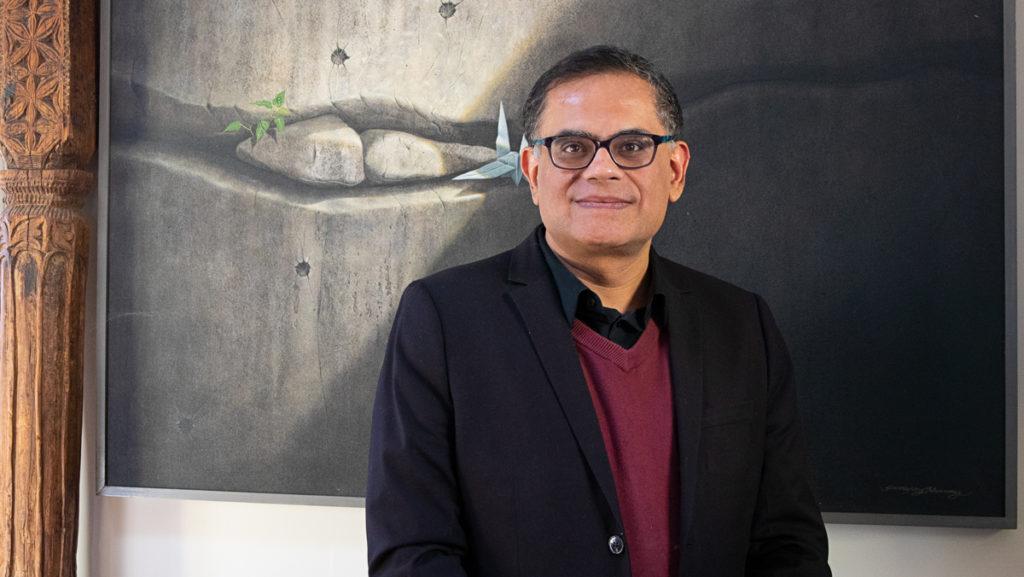If students are Ithaca College’s “why,” as the administration never tires of repeating, then why are those same students being ignored and talked down to? Are our voices not valued enough to be involved in a productive dialogue about the college’s future?
Since the administration announced in October that hundreds of faculty and staff members would be let go, it has been desperately trying to give the impression that its actions are the result of a collaborative consensus. For instance, in an Oct. 19 message to faculty, staff and students, President Shirley M. Collado wrote, “We want to pause right now and talk about why we are moving through this crucial moment in our history and how our current decisions will strengthen our beloved Ithaca College in the near and long term.”
Earlier this week, it finally became apparent to the administration that not everyone is buying in. On Dec. 13, members of the Open the Books Coalition — a group of students, faculty, staff and alumni — hung signs and wrote in chalk and marker on the Peggy Ryan Williams (PRW) Center, calling for financial transparency from the administration amid the planning for the cuts. In a Dec. 14 email to the college community, titled “Vandalism and Vulgarity Counter to Our Values,” Collado condemned the action.
While no one is advocating for the defacing of college property, Collado’s declaration of outrage at the relatively trivial offense of writing on a wall with a marker by people frustrated with having their concerns ignored for months seems like a disingenuous attempt to distract attention from the issues the protesters are raising.
It is unfortunate that it took such a physical action to get the administration’s attention, but it is even more unfortunate that it took so long.
The most hypocritical — and, frankly, offensive — part of Collado’s message was the last two sentences: “Let’s elevate our discourse and our behavior. Because what happened yesterday advances neither a productive dialogue about the college’s future, nor the values of our shared humanity.”
Not only is this demeaning, but it fails to acknowledge the opportunities for discourse that students have created over the last two months.
In November, Students for Labor Action held a protest at the entrance to the college, near PRW. No members of the administration were present. When The Ithacan requested a comment about the protest, the statement was filled with bureaucratic language justifying the cuts. There was no acknowledgment of the students’ efforts and concerns put forth during the event.
In December, Open the Books held a panel to discuss alternatives to faculty cuts. Members of the administration were invited, but it should come as no surprise that they did not attend.
The administration also has been avoiding calls for transparency from the Student Governance Council (SGC). In October, the administration declined to act on the SGC’s Tuition Transparency Request Bill, which recommended that the administration publish an explanation of the cost of 2020–21 tuition, a breakdown of where that tuition revenue was being spent and other information.
When students attempt to speak with the administration, it feels like we are hitting a wall. In October, The Ithacan requested information regarding the administration member’s salaries for the 2020–21 fiscal year. We asked two months ago. We asked last month. We ask again: What is the hesitation in revealing their current salaries and the voluntary pay cuts they say they took, especially during a time when hundreds of faculty and staff members are losing their jobs? We call, once again, for transparency.
What is perhaps most alarming is the fact that Collado’s email still failed to acknowledge the criticism that members of the campus community have been expressing. It ignored the very issue that students are raising: that firing hundreds of faculty and staff members in the middle of a pandemic, especially while the community is questioning the validity of the process, is not indicative of the college’s “values of shared humanity.”
Sadly, the arrogance of the administration’s refusal to acknowledge students’ concerns is starting to sound all too familiar.
In the fall of 2015, it was then-President Tom Rochon’s refusal to engage with students or listen to their concerns that set in motion a chain of events that led to votes of no confidence by the college’s students and faculty, and ultimately resulted in Rochon’s “retirement.” Students led that movement, just as they are leading now.
The last thing members of the campus community want is to issue another vote of no confidence. However, as seen here and at places like Hampshire College, there have been benefits to a move like this.
Time and time again, students are the ones who have to hold the college accountable. This is not being done out of ill will but rather because of our love for the institution. When will the college listen to students’ concerns for the betterment of everyone involved?
The college needs to seriously consider the concerns of the campus community before it is too late. Cultivating a mindset of us versus them and creating a divide between students and the administration is counterproductive. All students want to do is engage in a dialogue, and villainizing them is not helping the situation.
Moving into the spring semester, when more decisions will be announced regarding cuts, it is imperative that students are involved in the conversation. Otherwise, they will have no choice but to continue taking matters into their own hands.












